
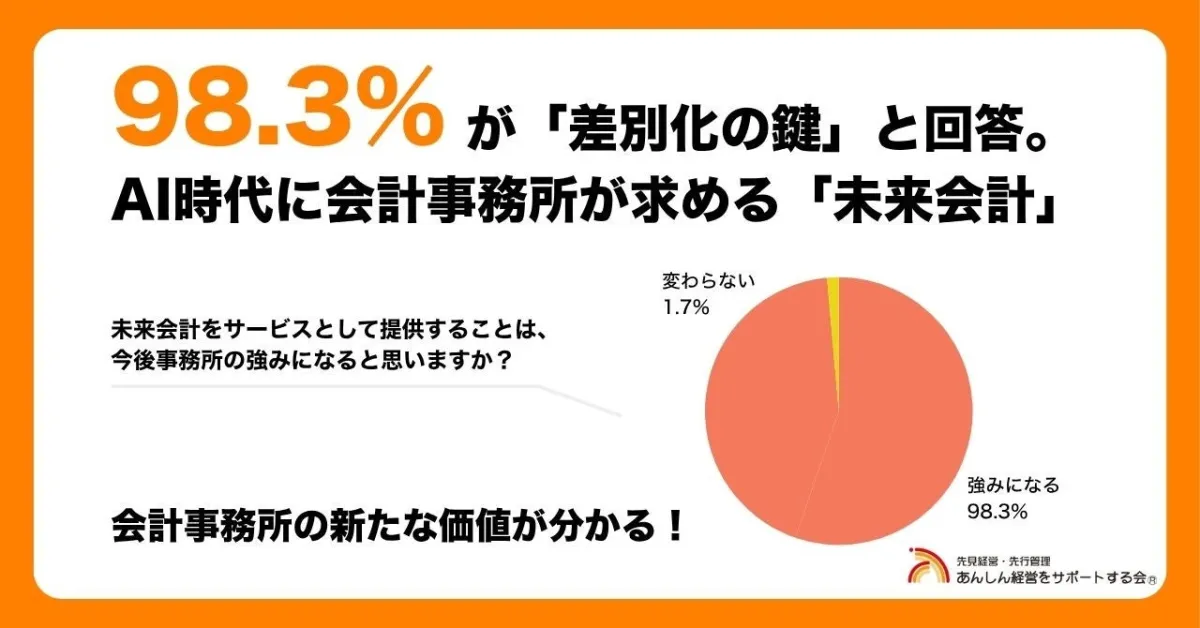
The Rise of Future Accounting: Transforming CPA Firms in Japan
The Rise of Future Accounting: Transforming CPA Firms in Japan
In the landscape of accounting in Japan, a significant shift is underway as firms adapt to the challenges posed by artificial intelligence (AI) and changing business needs. The "Anshin Management Support Association," based in Nakano, Tokyo, is at the forefront of this transition, advocating for the adoption of 'Future Accounting' — a new paradigm designed to empower businesses and significantly elevate the value accounting firms provide.
The Challenge of Traditional Accounting
Historically, accounting practices have relied heavily on what is termed 'Past Accounting.' This involves processes such as bookkeeping and tax filing, focusing on accurately recording events that have already occurred. As AI capabilities advance, many in the profession now recognize that traditional tax processing performed by CPAs might soon be replaced by technology, raising concerns about industry viability. Despite a growing number of certified tax professionals, competition intensifies, making it increasingly challenging for firms to distinguish themselves with conventional service models alone.
Survey Goals and Insights
In response to these challenges, the "Anshin Management Support Association" aims to promote Future Accounting as a viable method for supporting small and medium-sized enterprises (SMEs). A recent survey conducted from April to July 2025 involved 208 member accountants and sought to assess the effectiveness of Future Accounting in enhancing business value and addressing contemporary management support needs.
Survey Summary Findings
The results revealed that an overwhelming 98.3% of respondents believed that introducing Future Accounting would become a significant asset for their firms. The primary reason cited was improved customer satisfaction.
Additionally, 77.8% of accountants felt that Future Accounting contributed to growth among their SME clients, while 78.7% noted it helped solve various business challenges faced by these companies.
Key Factors of Success in Future Accounting
Accountants highlighted several factors for the successful implementation of Future Accounting:
- - Support for Strategic Planning: 61.7% of respondents indicated that assistance in creating and executing management plans was highly valued by clients.
- - Collaborative Guidance: 52.2% appreciated the value of hands-on support provided by their accounting firms during the implementation process.
Why the Shift to Future Accounting?
The vast majority of the accountants surveyed (68.3%) reported that adopting Future Accounting has positively impacted their firm’s value. The reasons included:
- - Enhancing Client Satisfaction: With 84.4% citing improved satisfaction among clients due to tailored support and services.
- - Increased Revenue and Profit: 60% noted their firms experienced growth in revenue and profitability since integrating Future Accounting.
- - Cultural Change Among Staff: 43.8% recognized a shift in mindset and awareness among their team regarding the importance of proactive financial management.
How Do Clients View Future Accounting?
Clients view accounting firms as approachable, reliable partners. The survey revealed that:
- - Trust and Credibility: 70.9% believe accountants are trustworthy sources for management support due to their proximity as financial advisors.
- - Perception as Financial Professionals: 37% feel confident because accountants are financial experts, while 32.2% see them as reliable due to their expertise in management.
Conclusion: A Win-Win for Firms and Clients
The findings from the survey underscore the importance of Future Accounting not only for driving growth in SMEs but also for enhancing the overall service value offered by accounting firms. Future Accounting aids in quantifying the aspirations and objectives of business leaders, translating abstract goals into actionable plans. It empowers CPAs to engage deeply with their clients, transforming mere number-crunching into a collaborative journey toward shared success. Even as AI continues to evolve, the nuanced understanding of human emotions, relationships, and organizational dynamics remains an area where accounting professionals hold a distinctive advantage.
Future Accounting, therefore, represents not just a method but a profound shift in how accountants engage with their clients, fostering partnerships that are rooted in trust, understanding, and a shared vision for the future.
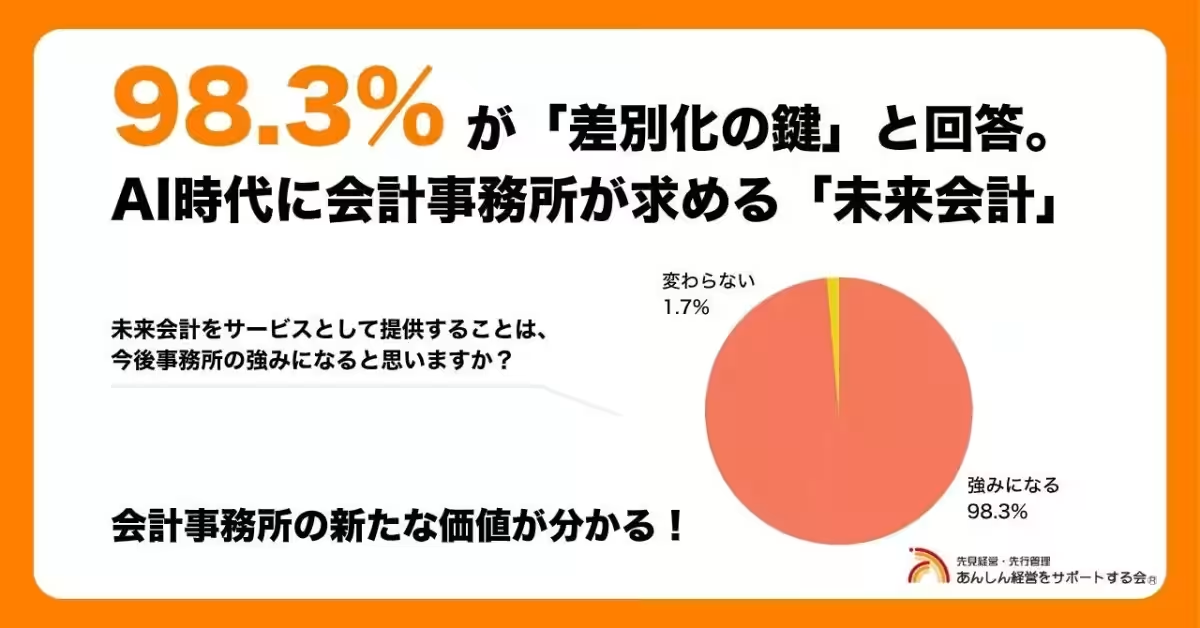
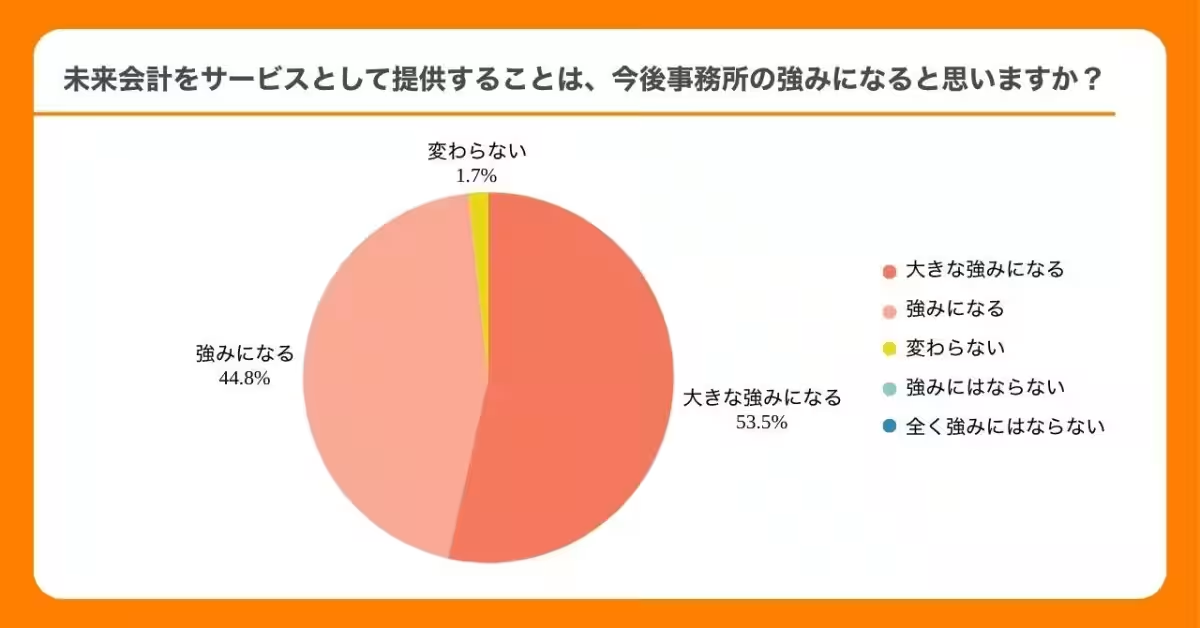
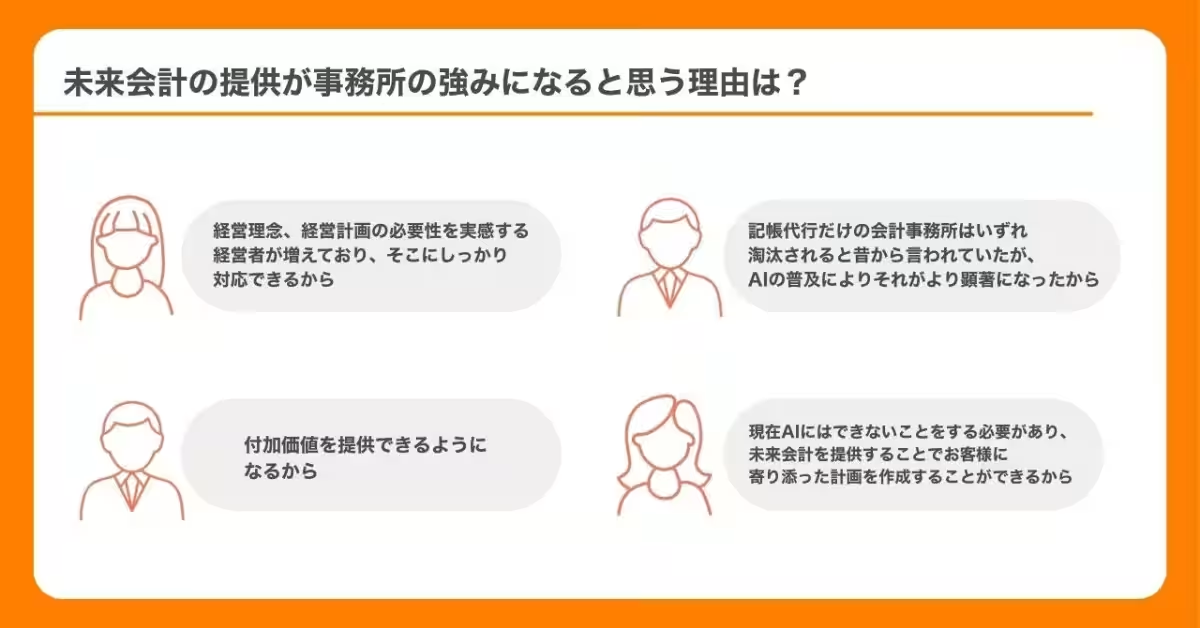
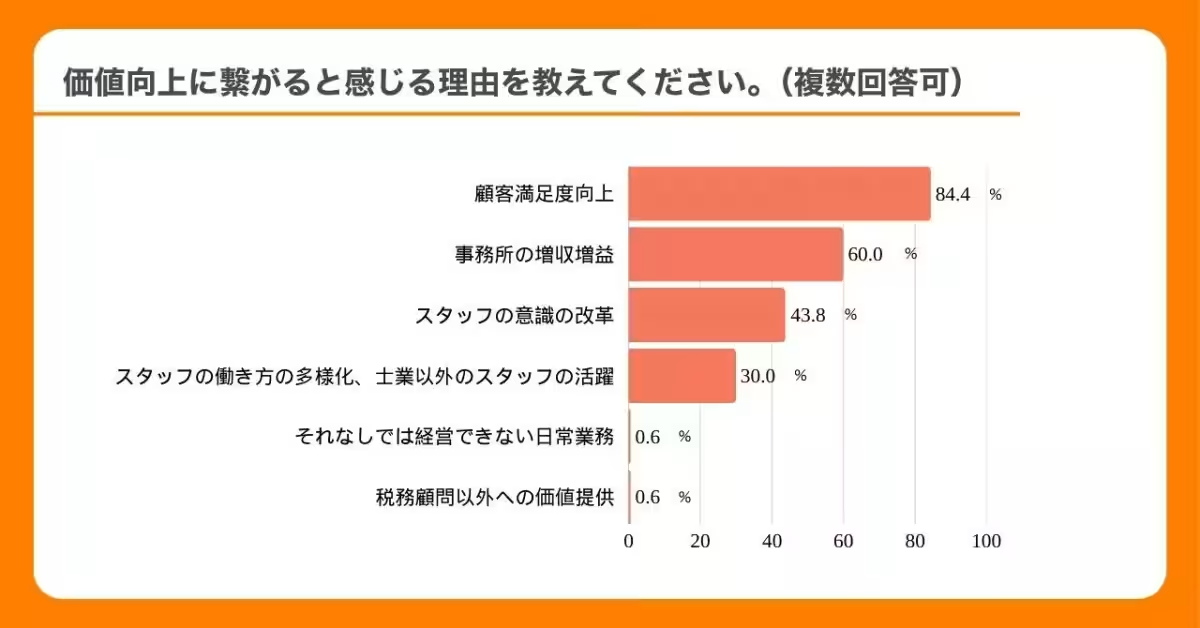
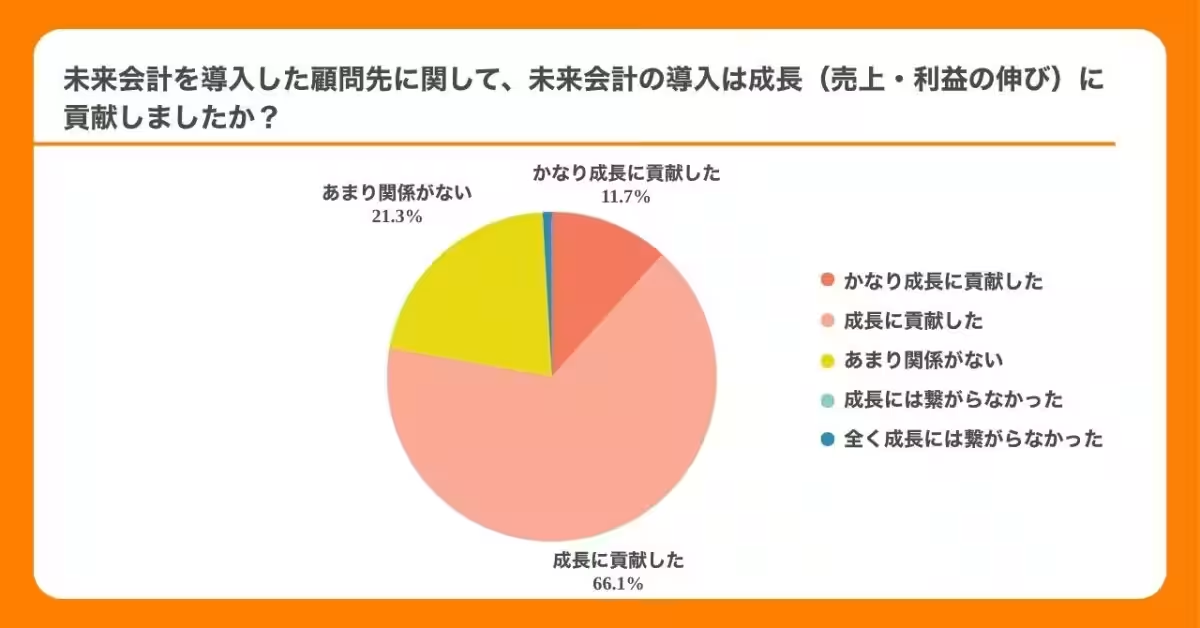
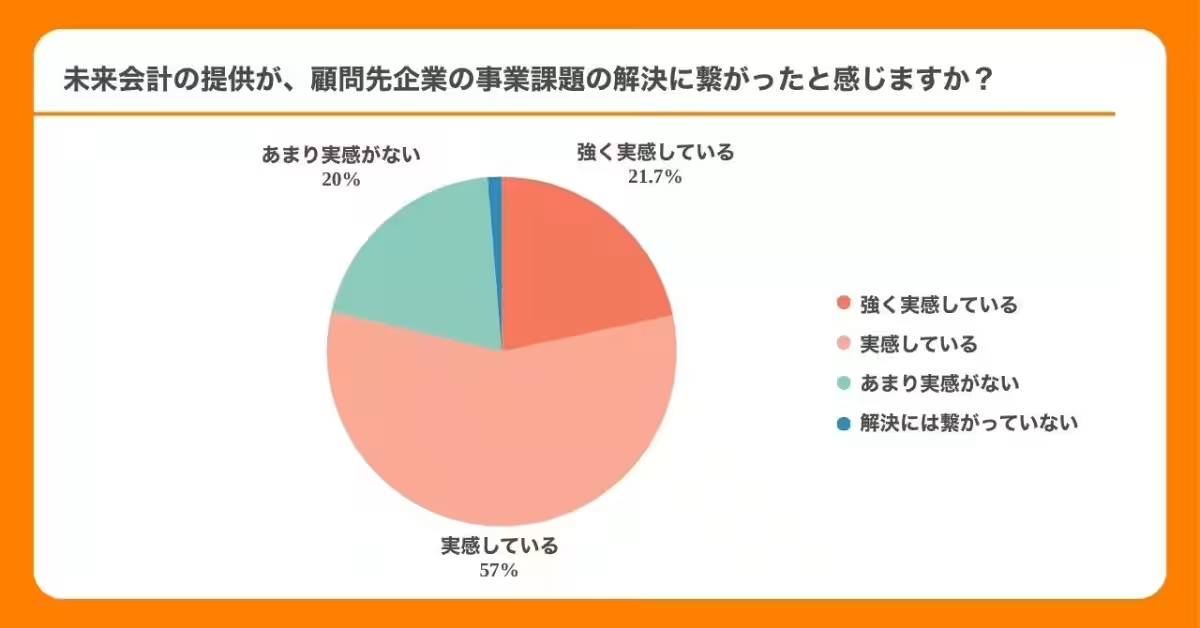
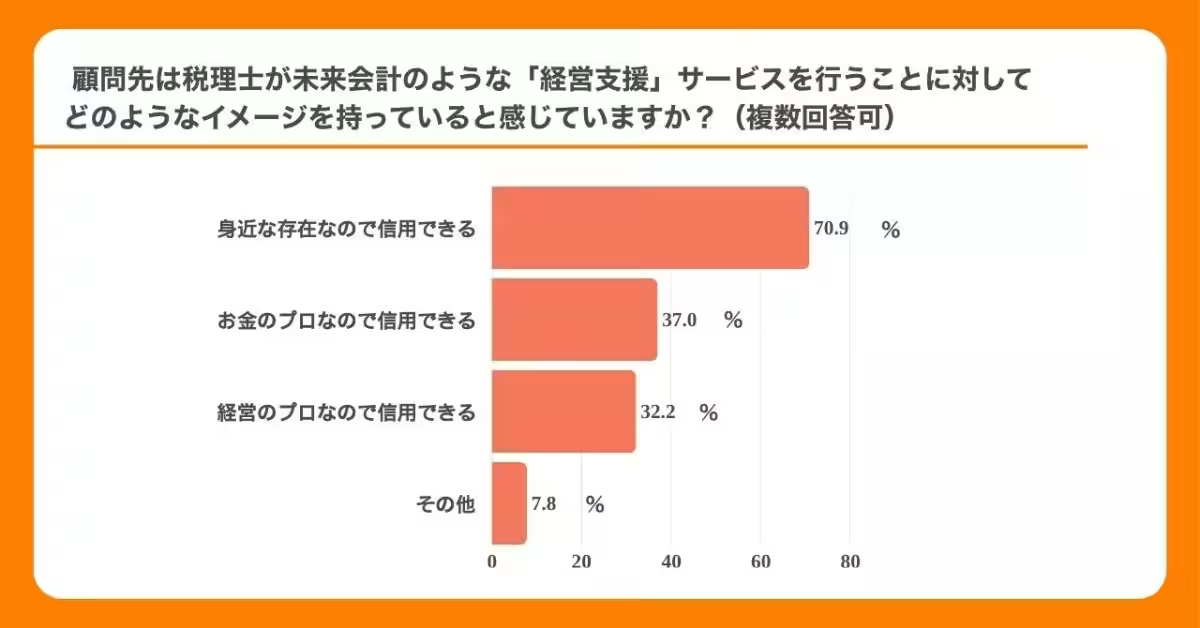
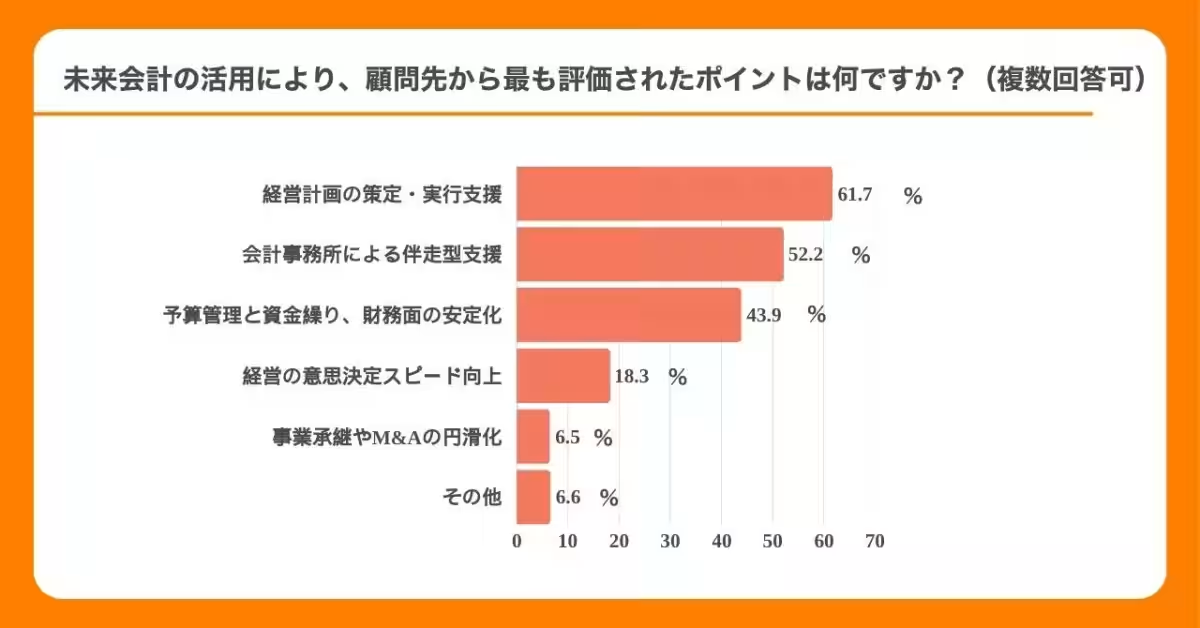
Topics Business Technology)










【About Using Articles】
You can freely use the title and article content by linking to the page where the article is posted.
※ Images cannot be used.
【About Links】
Links are free to use.